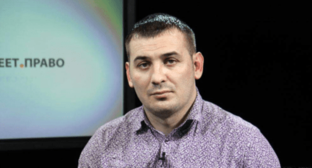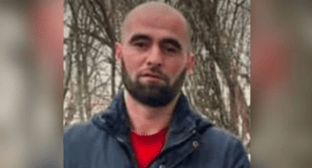22 May 2003, 19:21
Azerbaijanians
They call themselves Azerbajanlular. Nation in the Caucasus, the main population of Azerbaijan.
Population in Azerbaijan - 5,8 million people (1992). They also live in Iran (10430 thousand people), Russian Federation (336 thousand people), Georgia (307 thousand people), Kazakhstan (90 thousand people), Armenia and other countries. Total population is over 17,2 million people (1992). There are small diasporas in Afghanistan, Iraq and Turkey. In the 19th century and in the beginning of the 20th century in the official Russian documents Azerbaijanians were called Turks or Tatars. There are sub-ethnic groups of Azerbaijanians: Airums, Afshars, Bayars, Karadags (Karajidags), Karapapakhs, Padars, Shakhsevens etc. They belong mainly to the southern race of the big European race. Their language is of south-western (Oguz) subgroup of the Turk group of the Altai Branch. Dialect groups: eastern, western, northern, southern. Russian, Turkish and Persian languages are also common. The ancient literacy and the literacy of Azerbaijanians in Iran and some other countries of the middle east is based on Arab alphabet. The literacy in Azerbaijan is based on the Russian alphabet. In 1991 a law was taken to revive Azerbaijan alphabet using Latin alphabet (it was used in 1929-1939). The believers are Moslems, mainly shiits.
The population of several ancient states participated in the ethnogeny of Azerbaijanians: Mana (first half of the 1st millenium B.C.), Caucasus Albania (second half of the 1st millenium B.C. - 10th century A.D.), Midya, Atropatena (4th century B.C. - 7th century A.D.). After Atropatena was conquered by the Arabs in the 7th century, it was called Aderbei-Gan or Azerbaijan. In the first millenium B.C. - beginning of the second millenium A.D. the local population mixed with the coming tribes speaking Iran and Turk languages (Scythians, Gunns, Bulgars, Pechenegs etc.). The forming of the ethnic community of Azerbaijan finished by the 11-13th centuries when a new wave of Turk speaking tribes (Oguzs) invaded Azerbaijan and settled there.
The Northern Azerbaijan joined Russia in the first third of the 19th century, this caused the capitalist development of Azerbaijanians. The Azerbaijan nation began its consolidation process in the second half of the 19th century. In April of 1920 the Azerbaijan Soviet Socialist Republic was proclaimed (since 1991 - independent republic of Azerbaijan).
Traditional occupation of the rural population: agriculture, cotton-growing, horticulture, vine-growing, silkworm breeding, growing industrial crops, distant pasture sheep-breeding, cattle-breeding. The most important cereals are wheat, barley, rice as well as millet, rye, corn, oats; they grow cotton.
Most traditional agricultural instruments are a sickle with dents (chin) or no dents (orag), a scythe (kerenti, deryaz), a plough, a pitchfork (yab, shana).
Traditional trades are: carpet-making, goldsmith?s work and jewelry, making wrought copper utensils, pottery, wood and stone processing, weaving wool, silk and cotton, making felt, leather processing, making mats, braid (bafta), patterned belts (tumanbagu), lace, galoons, socks (jorabs) etc.
A big part of Azerbaijanians lives in the cities. Traditional country villages usually have disconnected planning. In the mountainous districts and in some lowland districts karadams were common - dwellings of wood and earth with step-pyramid covering, houses with wooden dome-shaped coverings, saklyas of the mountainous type, adobe constructions with flat earthen roofs. The nomadic and semi-nomadic population used felt tents alacug etc. The main construction materials were stone and fired and not fired bricks. The dwellings were usually heated with the help of a brazier kursi. Folk traditions are observed in the design and planning of modern houses of some districts of Azerbaijan (domed houses etc.).
The national costume is nearly completely replaces with modern clothes, it?s only worn by country women: a short (down to the hips) shirt, an arkhaluk of the same length (a low neck jacket), wide trousers, a skirt, a head kerchief or a small hat, a veil, jorabs and shoes. Traditional male costume consists of a shirt, an arkhaluk, a belt, a chukha (long overcoat with folds at the waist), trousers, jorabs, leather shoes, a fur hat.
Traditional food includes many diverse milk, meat, flour and vegetable dishes. Wheat bread is very important (in the mountainous areas they ate bread made of barley and millet flour). They bake it on a metal sheet saj or in a tendir. Among the floury meals we should note gutab - a kind of pies with meat and greens, among the meat meals - govurma, basdurma, lula-kebab, dolma and many others. Rice meals are common (there are more than 50 kinds of pilav). They eat dairy products (sour and fresh milk, sheep milk cheese, cottage cheese, butter), vegetables, greens, fruit, sweets. Common drinks are tea, sherbet, airan.
Folk music is well-developed, especially heroic (?Kitabi Dede Korkud?, ?Ker-Ogly?) and lyrical (?Ashug-Garib? and ?Asli Kerem?) epic stories sung by ashugs. The national musical instruments of Azerbaijan are: tar, saz, kanon, ud, kemancha, tutek, balamanor balaban, zurna, tambourine etc.
Ancient traditions were preserved for a long time, they got mixed with the Moslem ones: the New Year celebration Nouruz-bairam (March 21-22), the cult of fire, stones, trees, springs and wells.




